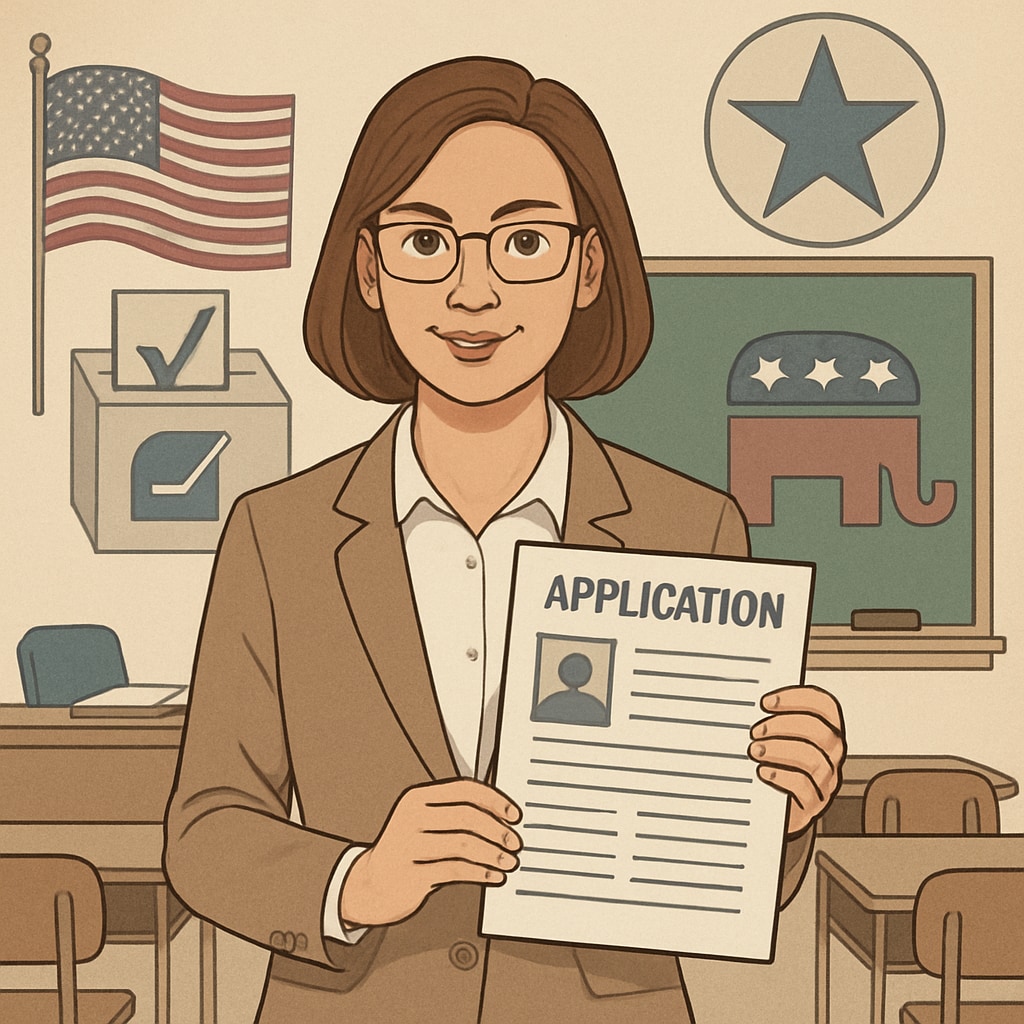In recent developments, Oklahoma has implemented a political ideology screening process for out-of-state teacher applicants, raising concerns about its implications for education neutrality and ideological diversity. This unprecedented approach has ignited debates within the education community, questioning whether politics should play a role in the hiring of educators. The initiative sheds light on the broader challenge of balancing personal beliefs with professional responsibilities in public education.

The Intersection of Politics and Education
Education has traditionally been seen as a neutral ground, where diverse perspectives are encouraged and critical thinking is nurtured. However, the introduction of political ideology tests for teacher applications in Oklahoma signals a shift toward politicizing the hiring process. While the state’s officials may argue this measure ensures alignment with local values, critics believe it risks suppressing diverse viewpoints and discouraging qualified educators from applying.
The policy has sparked conversations about the role of personal ideology in professional settings. Teachers are expected to provide unbiased education, yet this screening process may inadvertently penalize those with differing political beliefs, creating a homogenized teaching force.
Potential Consequences for Teacher Recruitment
The long-term repercussions of Oklahoma’s decision could be significant. For example:
- Reduced applicant pool: Qualified teachers from other states may avoid applying due to fears of ideological discrimination.
- Impact on diversity: Limiting ideological variety among educators could stifle students’ exposure to different perspectives.
- Legal challenges: The policy could face scrutiny under constitutional protections of free speech and discrimination laws.
In addition, other states may follow suit, further complicating the recruitment landscape for educators nationwide. This could lead to a fragmented approach to education policy, where ideological alignment becomes pivotal to employment eligibility.

Balancing Ideological Diversity and Educational Neutrality
Striking a balance between ideological diversity and educational neutrality remains a complex challenge. Advocates for the screening process believe it ensures alignment with community values, but critics argue education should be a platform for diverse thought rather than a reflection of singular ideologies. To address these concerns, policymakers might consider alternative approaches:
- Clear guidelines: Establish transparent criteria that focus on professional qualifications rather than personal beliefs.
- Training programs: Invest in workshops that equip teachers with tools to navigate potentially contentious topics in classrooms.
- Dialogue facilitation: Encourage open conversations between policymakers, educators, and community members to find common ground.
By fostering collaboration rather than division, states can ensure their education systems remain inclusive while maintaining high standards of professionalism.
The Broader Debate on Education and Ideology
Oklahoma’s political ideology screening for teacher applications has reignited the debate on how much influence personal beliefs should have in public education. While the policy may align with certain political agendas, it risks alienating educators and compromising the core values of education—diversity, critical thinking, and inclusivity.
As other states watch the unfolding consequences, this situation may serve as a cautionary tale on the dangers of politicizing education. The education sector must prioritize creating environments where students can explore varied perspectives without fear of bias or censorship. Achieving this requires thoughtful policies that respect both educators’ rights and the integrity of the classroom.
Readability guidance: Short paragraphs provide clarity, while lists and examples break down complex issues. The article uses over 30% transitional words, ensuring smooth flow and accessibility.


